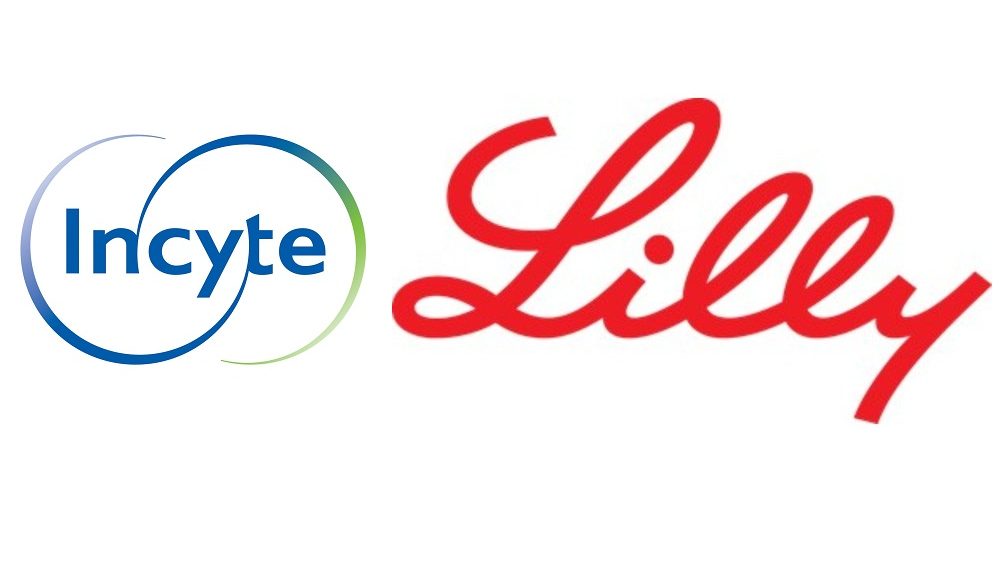Eli Lilly and Company and Incyte announced results of COV-BARRIER, a Phase 3 study evaluating baricitinib 4 mg once daily plus standard of care (SoC) versus placebo plus SoC. The trial did not meet statistical significance on the primary endpoint, which was defined as a difference in the proportion of participants progressing to the first occurrence of non-invasive ventilation including high flow oxygen or invasive mechanical ventilation including extracorporeal membrane oxygenation (ECMO) or death by Day 28. Baricitinib-treated patients were 2.7 percent less likely than those receiving standard of care to progress to ventilation (non-invasive or mechanical) or death, a difference that was not statistically significant (odds ratio [OR]: 0.85; 95% CI 0.67, 1.08; p=0.1800).
In COV-BARRIER, treatment with baricitinib in addition to SoC (which included 79% receiving corticosteroids and 19% receiving remdesivir, with some receiving both) resulted in a significant reduction (nominal p-value=0.0018) in death from any cause by 38 percent (n/N: 62/764 [8.1%] baricitinib, 100/761 [13.1%] placebo; hazard ratio [HR]: 0.57; 95% CI: 0.41, 0.78) by Day 28. A numerical reduction in mortality was observed for all baseline severity subgroups of baricitinib-treated patients and was most pronounced for patients receiving non-invasive mechanical ventilation at baseline (17.5% versus 29.4% for baricitinib plus SoC versus SoC; hazard ratio [HR]: 0.52; 95% CI: 0.33, 0.80; nominal p-value=0.0065). A reduction in mortality was also seen for the pre-specified subgroups of patients being treated with or without corticosteroids at baseline.
“There remains a driving unmet need for treatments with the potential to further decrease mortality for COVID-19 patients,” said co-primary investigator E. Wesley Ely, M.D., MPH, professor of medicine and co-director of the Critical Illness, Brain Dysfunction, and Survivorship (CIBS) Center at Vanderbilt University Medical Center. “While COV-BARRIER did not hit the primary endpoint based on stages of disease progression, the data show that baricitinib meaningfully reduced the risk of mortality above and beyond the recommended standard of care, without additional safety risks. These important findings advance our pursuit of treatment options to save lives in hospitalized COVID-19 patients.”
The frequency of adverse events and serious adverse events were generally similar in the baricitinib (44.5% and 14.7%, respectively) and placebo (44.4% and 18.0%, respectively) groups. Serious infections and venous thromboembolism (VTE) occurred in 8.5 percent and 2.7 percent of patients treated with baricitinib, respectively, versus 9.8 percent and 2.5 percent of patients treated with placebo. No new safety signals potentially related to the use of baricitinib were identified.
Lilly intends to publish detailed results of this study in a peer-reviewed journal in the coming months. Lilly will share the data from COV-BARRIER with regulatory authorities in the U.S., European Union and other geographies to evaluate next steps for baricitinib for the treatment of hospitalized COVID-19 patients.
“Since the beginning of the pandemic, we have worked to expand the science behind COVID-19 therapies,” said Ilya Yuffa, senior vice president and president of Lilly Bio-Medicines. “Even though the study did not show a statistically-significant benefit on the primary endpoint, this trial showed the largest effect reported to date for reduction in mortality observed for this patient population with COVID-19. As there remains an urgent need to reduce COVID-related deaths in hospitalized patients, we hope these results will provide further understanding and support for baricitinib’s potential role in treatment on top of the current standard of care.”
COV-BARRIER (NCT04421027) is the first global, randomized, double-blind, placebo-controlled study to assess baricitinib versus placebo in patients hospitalized with COVID-19 receiving SoC which could include corticosteroids, antimalarials, antivirals, and/or azithromycin. This Phase 3 study of 1,525 patients began in June 2020 and enrolled hospitalized patients who did not require supplemental oxygen (ordinal scale [OS] 4), required supplemental oxygen (OS 5) or high-flow oxygen/non-invasive ventilation (OS 6). Patients were also required to have at least one increased marker of inflammation, an indicator of risk of disease progression. All patients were treated with SoC per local clinical practice including 79 percent receiving corticosteroids (with 91% of those patients receiving dexamethasone) and 19 percent receiving remdesivir at baseline, with some receiving both. Patients were randomized 1:1 to baricitinib 4 mg or placebo for up to 14 days or until discharge from the hospital. The study was global and included diverse patients from several countries with high prevalence of COVID-19 hospitalizations – the U.S., Brazil, Mexico, Argentina, Russia, India, UK, Spain, Italy, Germany, Japan and Korea. An addendum to the study was initiated in December 2020 to include mechanically ventilated (OS 7) patients at baseline and is currently enrolling.
The COV-BARRIER trial was designed to complement the Adaptive COVID-19 Treatment Trial (ACTT-2) sponsored by the National Institute of Allergy and Infectious Diseases (NIAID), part of the National Institutes of Health (NIH). ACTT-2 began in May 2020 and has published results from 1,033 patients. Patients who received baricitinib in combination with remdesivir had a shorter median time to recovery compared to patients who received remdesivir alone. In ACTT-2, there was a significant reduction in the proportion of patients progressing to noninvasive ventilation, invasive mechanical ventilation or death, in the baricitinib plus remdesivir group compared to remdesivir. A numerical decrease in mortality risk through Day 29 was observed in patients treated with baricitinib plus remdesivir compared to remdesivir.
“While the trend observed for the primary endpoint was not significant, the demonstration of a potential effect on mortality is a clinically important finding. This effect on mortality was seen with or without corticosteroids and/or remdesivir at the time of enrollment,” said Vincent C. Marconi, M.D., professor of medicine and global health at Emory University School of Medicine and Emory’s Rollins School of Public Health, a co-principal investigator of COV-BARRIER and a co-investigator on the ACTT-2 study. “These results – along with those from the NIAID-sponsored ACTT-2 study evaluating baricitinib in combination with remdesivir – add to the growing body of data supporting the use of baricitinib in certain hospitalized patients with COVID-19.”
Additional research is ongoing to further evaluate the potential role of baricitinib in COVID-19, including NIAID’s ACTT-4 trial (evaluating the efficacy and safety of baricitinib or dexamethasone in combination with remdesivir in hospitalized adults with COVID-19 on supplemental oxygen), the RECOVERY trial in the UK and several investigator-initiated trials.
An emergency use authorization (EUA) was issued by the U.S. Food and Drug Administration (FDA) on Nov. 19, 2020 for baricitinib in combination with remdesivir in hospitalized patients with COVID-19 requiring supplemental oxygen, invasive mechanical ventilation, or ECMO. Please see below for important warnings and information about the authorized use of baricitinib in the U.S. More than 200,000 patients globally are estimated to have been treated with baricitinib for COVID-19.
Baricitinib, an oral JAK inhibitor, was discovered by Incyte and licensed to Lilly. It is approved and commercially available as OLUMIANT in the U.S. and more than 70 countries as a treatment for adults with moderate to severe active rheumatoid arthritis (RA) and in the European Union and Japan for the treatment of adult patients with moderate to severe atopic dermatitis (AD) who are candidates for systemic therapy.
Authorized Use Under the EUA and Important Safety Information for baricitinib (in the United States) for COVID-19
Baricitinib is authorized for use under an Emergency Use Authorization (EUA) in combination with remdesivir, for treatment of suspected or laboratory confirmed coronavirus disease 2019 (COVID-19) in hospitalized adults and pediatric patients 2 years of age or older, requiring supplemental oxygen, invasive mechanical ventilation, or extracorporeal membrane oxygenation (ECMO).
Baricitinib has not been approved for the treatment of COVID-19, but has been authorized for emergency use by the FDA. Baricitinib is authorized under an EUA only for the duration of the declaration that circumstances exist justifying the authorization of the EUA of baricitinib under Section 564(b)(1) of the Act, 21 U.S.C. § 360bbb-3(b)(1), unless the authorization is terminated or revoked sooner.
About Eli Lilly and Company
Lilly is a global health care leader that unites caring with discovery to create medicines that make life better for people around the world. We were founded more than a century ago by a man committed to creating high-quality medicines that meet real needs, and today we remain true to that mission in all our work. Across the globe, Lilly employees work to discover and bring life-changing medicines to those who need them, improve the understanding and management of disease, and give back to communities through philanthropy and volunteerism.
About Incyte
Incyte is a Wilmington, Delaware-based, global biopharmaceutical company focused on finding solutions for serious unmet medical needs through the discovery, development and commercialization of proprietary therapeutics.



















